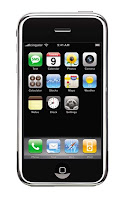 With smart phones, app stores and the likes being all the hype, some of the commercially more successful mobile entertainment companies over the past several years tend to be, well, maybe not forgotten but dropping out of the limelight. I am talking about direct-to-consumer (D2C) providers.
With smart phones, app stores and the likes being all the hype, some of the commercially more successful mobile entertainment companies over the past several years tend to be, well, maybe not forgotten but dropping out of the limelight. I am talking about direct-to-consumer (D2C) providers.
Mobile D2C has been a much-maligned segment: Jamba/Jamster (now Fox Mobile), Zed, Buongiorno (or rather its Blinko consumer brand), Thumbplay, Playphone, and then the ones that have been gobbled up by competitors or fallen by the wayside over time such as Movilisto, Jippii, Monstermob, I-Touch, etc, etc. And the bad name was, at times, fully justified. Various subscription scandals, resulting class actions, general discomfort by consumers on how to handle this new type of service offering (and how to get rid of it again), they’ve had it all.
But what they also have is a real business. Just about the only awe-inspiring numbers the mobile content space has seen came from D2C players: whereas numbers are – as usual – a little hard to come by, Zed had previously been reporting monster revenues, Thumbplay is said to be the US market leader and grew from 2007 to 2008 by a cool 275%, Jamba was past the $600m mark already back in 2005 (I do not have more current numbers).
 There are companies however that tower over much, much better known mobile entertainment companies but largely escape the hype, and one of them is SendMe Mobile. Their founder & CEO Russ Klein recently revealed the company’s revenues, which are a not too shabby $10m — per month — and looking to ramp up for a cool $150m p.a. by the end of this year! So Russ’ company, which was founded only in 2006 and which deals with the relatively mundane end of mobile content outsells probably the vast majority of mobile entertainment firms on the planet. So who has heard of them? Many, many of their customers, I suppose.
There are companies however that tower over much, much better known mobile entertainment companies but largely escape the hype, and one of them is SendMe Mobile. Their founder & CEO Russ Klein recently revealed the company’s revenues, which are a not too shabby $10m — per month — and looking to ramp up for a cool $150m p.a. by the end of this year! So Russ’ company, which was founded only in 2006 and which deals with the relatively mundane end of mobile content outsells probably the vast majority of mobile entertainment firms on the planet. So who has heard of them? Many, many of their customers, I suppose.
SendMe has raised around $35m in venture capital to get here and doesn’t expect to needing anymore. SendMe also runs a mobile social community (MBuzzy) and has a reverse-auction service (SoLow). And that’s it. Easy, huh? I tip my hat, Mr Klein!












